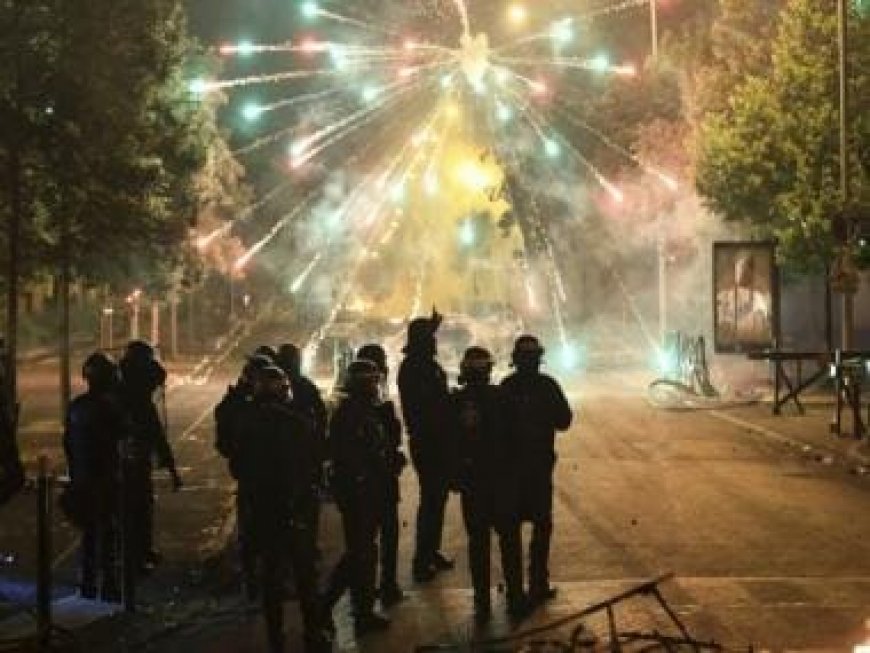Why France has banned fireworks for Bastille Day
Why France has banned fireworks for Bastille Day

The tension is palpable across France. After last week’s unprecedented riots and protests triggered by the killing of a teenager by the police, there has been a brief lull so far. But the authorities are cautious. Come Friday, 14 July, the country will celebrate Bastille Day (France’s National Day) to which Prime Minister Narendra Modi has been invited as a Guest of Honour. With all eyes on the country, it has banned fireworks for the upcoming festivities.
The sale, possession and transport of fireworks have been prohibited for a week in France, including the 14 July national holiday weekend. Bastille Day marks the storming of the Bastille prison in Paris more than 200 years ago, an important event during the French Revolution.
The ban on fireworks
“In order to prevent the risk of serious disturbances to public order during the July 14 festivities, the sale, possession, transport and use of pyrotechnical articles and fireworks are banned until July 15 inclusively,” said a government decree published in the official journal on Sunday.
The Bastille Day celebrations usually see spectacular displays of fireworks across the country. But this year, the country is breaking away from the tradition.
However, the ban which came into effect on Sunday does not extend to professionals or municipalities that are organising traditional fireworks for the Bastille Day celebrations, it added.

Fireworks turn weapons
During the week of unrest following the killing of Nahel Merzouk, the 17-year-old delivery driver of Algerian descent, fireworks were widely used by rioters against the police along with stones and bottles.
Firework rockets with velocities of up to 100 kph have become popular among protesters because of their low cost and availability. Launched horizontally, they cause damage by fires and lead to injuries and even deaths. Suppliers have reportedly been offering delivery on social media platforms like TikTok.
Earlier rioters in France use Molotov cocktails but in the 2010s fireworks became popular, especially in the urban parts of the country like Paris. “Today, as soon as we are confronted with urban violence, we are almost sure that there will be fireworks,” a police source told 20 Minutes, a French newspaper.
Now France fears that firecrackers could be weaponised again during the 14 July celebrations. The possession, use and sale of fireworks mortars to non-professionals are punishable by penalties of up to six-month imprisonment and a fine of 7,500 euros, according to 20 Minutes.
There will be heavy security across France on 13 July and 14 July. French prime minister Élisabeth Borne has promised “massive measures to protect French people” on the two days which she described as sensitive during an interview with the French daily Le Parisien. She said that people were “quite worried” that violence would erupt again on the national holiday.
The French government wants to avoid further tension after last week’s riots. “Local officials I have met are concerned about the possibility of more incidents during the national holiday,” the PM said.

Spotlight on minors
Borne also told the newspaper that the French government was considering fining the parents of minors who were involved in the violence. “Today, when an adult commits an act of this nature, we can have recourse through a fixed fine. It’s fast and efficient. This is not possible for minors. We are thus going to construct a provision that permits this,” Borne said in the interview.
Last week, French president Emmanuel Macron proposed imposing “a sort of minimum tariff from the first stupid act” on the parents of minors, according to a CNN report.
Over 3,700, including at least 1,160 minors, were arrested after the violence following Nahel’s killing, according to official figures.
France’s interior minister Gerald Darmanin had said that children as young as 12 and 13 were detained by the police during the riots. The average of those detained was 17, the same age as Nahel.
Also read: Riots in France: How the country has a long history of racist police violence
Bastille Day and violence
In the past, Bastille Day festivities have been marred by violence and protests.
In 1953, French veterans and police killed half a dozen Algerian protesters who unfurled pro-independence banners at the 14 July parade.
In 2009, riots took place in the eastern Parisian suburb of Montreuil after the death of Mohamed Benmouna, a young Algerian man, in police custody.
In 2016, a 31-year-old delivery driver identified as Mohamed Lahouaiej-Bouhlel was shot dead by police after killing 84 people, including 10 children and teenagers, and injuring scores more in a deadly Bastille Day rampage in Nice.
In 2019, the celebrations once again descended into violence and 175 anti-government protesters were arrested in Paris alone. Tear gas and baton charges were used by police on the Champs-Elysee. Demonstrators from the Yellow Vest movement had infiltrated the event. Similar protests were organised in other cities and towns.
So far, this year has seen widescale protests in France, first against Macron’s pension reforms and most recently against police brutality. The government is doing all it can to ensure that the 14 July celebrations remain peaceful.
With inputs from agencies
What's Your Reaction?


























































